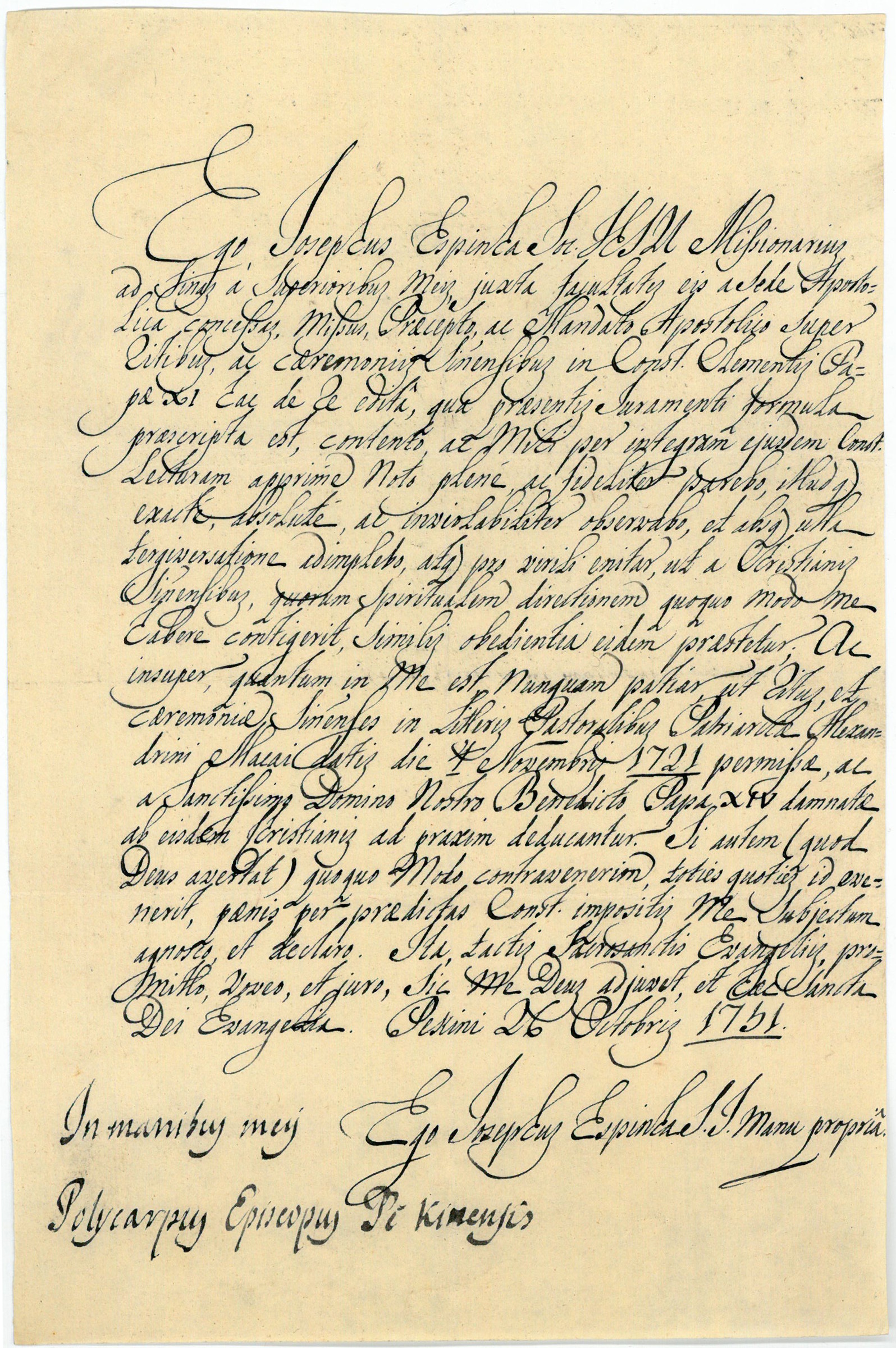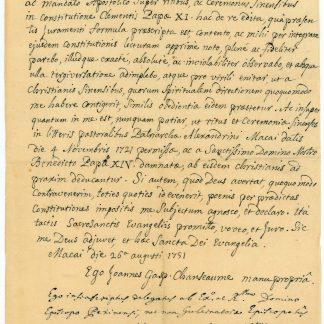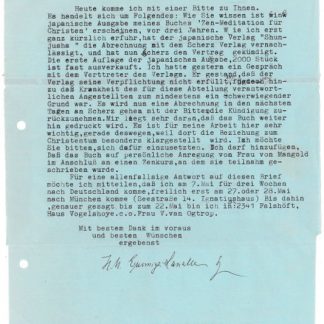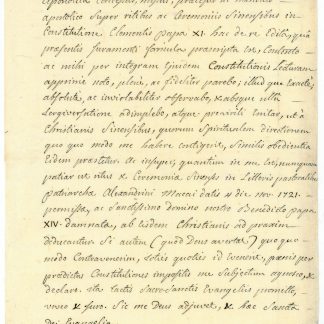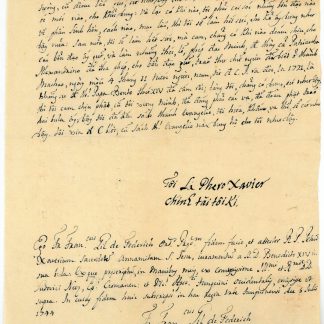Divided loyalties: José d'Espinha renounces the Chinese rites while serving the Qianlong Emperor
Autograph document signed. Co-signed by the bishop of Beijing, Polycarpo da Souza.
8vo. 1 p. In Latin.
€ 4.500,00
An oath renouncing the practice of the Chinese rites taken by the prominent Jesuit as required by the Papal Bull "Ex Quo Singulari" (1742). The oath was sworn on the Bible, and a signed autograph ("manu propria") of the formula had to be produced as evidence. Most of these documents are co-signed by church officials or superior friars as witnesses to an oath sworn in their presence ("in manibus meis"), in this case the Bishop of Beijing, Polycarpo da Souza (1743-57).
José d'Espinha is a perfect example for the high estimation of Jesuit missionaries as scientists at the Imperial court in Beijing and their acculturation to Chinese customs. Born in Lamego, Portugal, d'Espinha joined the Society of Jesus in 1739 and was sent to Beijing via Goa and Macau in 1751. In 1755, at the request of the Qianlong Emperor, he accompanied the then vice-provincial and astronomer Félix da Rocha on a cartographic mission to Western Mongolia. Upon his return, the Emperor promoted d'Espinha to fourth-ranking mandarin. From 1762 to 1765 and in 1773, until the suppression of the Jesuits that year, d'Espinha served as vice-provincial of China. Evidently, neither the Chinese rites controversy nor the suppression of the Jesuits in the Portuguese Empire in 1759, nor the abolition of the order by Pope Clement XIV affected José d'Espinha's career: he was sent on several scientific missions to Tibet between 1774 and 1777, and succeeded Félix da Rocha as director of the Imperial Astronomical Office (Quintian Jian) in 1781. That year, he was also appointed Vicar General of the Diocese of Beijing, where he died in 1788.
During the early years of their mission to East Asia, the Jesuits led by Matteo Ricci accommodated Catholicism to Chinese customs and Confucian practice in important ways, both for political reasons and in hopes of attracting more converts. Criticism of this syncretism is as old as the Chinese rites themselves, and Ricci's direct successor Niccolò Longobardo attempted to change course, which led to his replacement as provincial. When Dominican and Franciscan missionaries entered China, they critically reported to Rome on the Jesuit practices. A first condemnation was decreed by Pope Clement XI in 1704, confirmed in the 1715 Bull "Ex Illa Die". In reaction to the condemnation, the Kiangxi Emperor, who initially tolerated the Christian missionaries and had especially good relations with the Jesuits, officially forbade Christian missions in China. In 1721, Carlo Ambrosio Mezzabarba, the Latin Patriarch of Alexandria, was sent to Macau and Beijing as a Papal legate. Despite the concession of "eight permissions" regarding the practice of the Chinese rites, officiated in a pastoral letter to the missionaries from 4 November 1721, the Emperor did not revoke his ban. Finally, in "Ex Quo Singulari", Pope Benedict XIV re-affirmed the Bull of 1715, requiring all missionaries in the region to take the oath renouncing the practice of Chinese rites.
A transcription and translation of the document are available on request.
Well preserved.
Louis Pfister, Notices biographiques et bibliographiques sur les jésuites de l'ancienne mission de Chine, 1552-1773, Chang-hai, 1932-1934 (Nendeln: Kraus Reprint, 1971), pp. 865 f.

